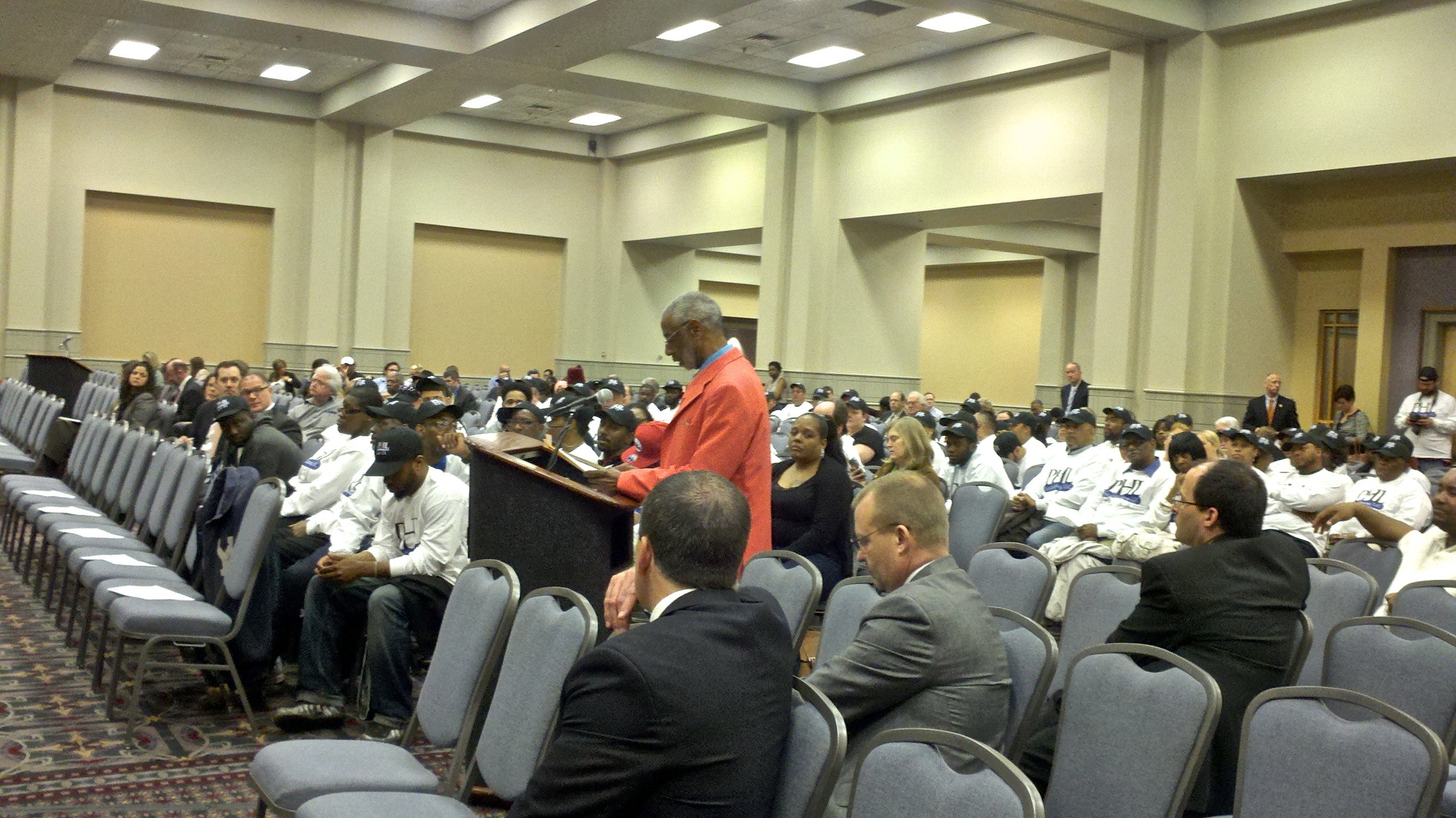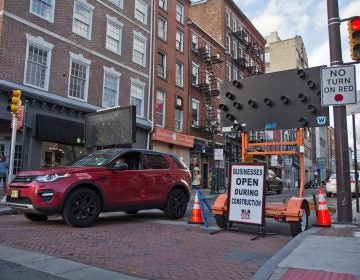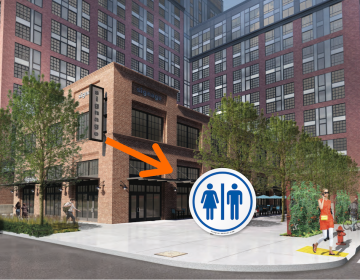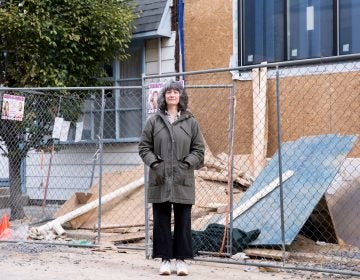A day of casino testimony underway

Local officials urged the Pennsylvania Gaming Control Board to think about more than slots and table game receipts when it considers six proposals for Philadelphia’s second casino license. They said it was too soon to endorse a particular proposal.
Community representatives, however, mostly had no problem chosing a favorite, with endorsements for many different plans based on a belief they would create jobs or stimulate growth in the surrounding areas.
Meanwhile, SugarHouse Casino, which operates with Philadelphia’s other gaming license, has filed a plan for expansion with the PGCB, said spokesman Doug Harbach. The plan modifies the second phase of development the board already approved. The documents say that based on input from the city and city-related entities, SugarHouse would reduce the height of the proposed parking garage from 10 to seven stories, expand the existing waterfront promenade and water front trail, and locate “additional food and beverage outlets” on the river side. The board must approve the plan before SugarHouse can build. Harbach said a hearing will be held in Philadelphia, but it has not yet been set.
The contenders for the second license:
The Provence, Tower Entertainment, 400 N. Broad Street.
Casino Revolution, PHL Local Gaming, LLC, 3333 South Front Street
Hollywood Casino, PA Gaming Ventures, LLC, 700 Packer Avenue
Wynn Philadelphia, Wynn PA, Inc, 2001 Beach Street and 2001 through 2005 Richmond Street
Market 8, Market East Associations, 8th and Market streets
Live! Hotel and Casino, Stadium Casino, LLC, 900 Packer Avenue
State Sen. Lawrence Farnese, whose district includes all six proposed casino sites, was first to testify. Farnese said choosing a favorite at this time would be “difficult if not unfair.” He instead gave the board a suggested list of criteria to make their decision: Overall economic impact, community impact on host neighborhoods and suitability of the applicants. He urged the board to keep the process open to the public, and even in matters of finance, said they should err on the side of openness.
Farnese said if the board were going to pick the winner based soley on the amount of revenue the slots and table games could generate, their decision would be simple: The biggest box with the most games. But he urged the board to look more carefully at the broader picture of economic and other impacts on the community.
Deputy Mayor for Economic Development Alan Greenberger didn’t name a favorite, either. He said the city supports a second casino and believes it will “have a significant impact on city in terms of job creation and revenue.” And then he outlined the steps the city has or will take to evaluate the six proposals and determine which would have the most and best impact.
The city has hired an economic consultant to help it evaluate the potential impacts, and has held listening sessions to hear from the public, Greenberger said.
Both are designed to help the city determine the economic impact of both gaming and non-gaminc activities. The city will consider job creation and revenue, and the ability of each proposal to spur development around it. The city will also look at the effect each proposal would have on the surrounding residents and businesses, including social impacts, safety and traffic, he said. And it will look at what positive impacts each proposal would have on the city’s image.
Greenberger noted that the city’s analysis must also look at how each proposal would impact SugarHouse revenue. The city’s financial benefit is dependent on the total revenues of both casinos, he said, so it must be determined which proposal or proposals would impact SugarHouse the least.
“We will rely on an open exchange of ideas with applicants and community to push each (proposal) to its highest potential.”
After a site is selected, Greenberger said, the city will continue to work with the winning team to improve the project. Among the first tasks will be placing the zoning classification that allows gaming on the site, he said, and that requires a public process before both the planning commission and city council.
The PCPC has posted images and summaries of information about all six proposals here.
After the first two speakers, most seemed to have no trouble picking their favorites.
Real Estate Developer Steven Clofine said Bart Blatstein’s Provence was the way to go, because Blatstein’s earlier developments in Philadelphia have shown he knows how to revitalize neighborhoods, and this one would be no different. Carl Cherkin expressed similar sentiments, saying the word to describe Blatstein’s work near Temple University, at the Piazza at Schmidt’s in Northern Liberties, and elsewhere is “transformational.”
Steven Bradley, Chair of the African-American Chamber of Commerce, endorsed two proposals: Market 8 and Penn National Gaming’s Hollywood Casino. He said both could spur development, and each set of principals have shown a commitment to hiring women and minority employees.
Life-long Philadelphian and businessman Jimmy Cade praised PHL Local Gaming’s Casino Revolution for its location near the stadiums and its principles’ business experience and local address.
“PHL principals are local and would have a greater, I feel, commitment and understanding of the community, as opposed to being just another member of a vast gaming empire,” he said.
Cade got many cheers from a sea of people wearing white PHL t-shirts.
Design Advocacy Group Chairwoman Kiki Bolender summed up the report card her group gave to the six proposals, based on both location and design. Market 8 got the highest grades and the only A, with The Provence not far behind. DAG gave a host of C-range grades to the South Philadelphia casinos and the Wynn Philadelphia proposal got the lowest grade, a D, for its location.
DAG likes Market 8 best because of its location on a block that is now surface parking at Market and 8th streets, its ground-level retail and its design. The Provence, at Callowhill and Broad streets, also has a good location, although it would be better if more of the proposal was on Broad Street rather than Callowhill, DAG says. The interior design is very interesting, Bolender said, but the exterior is lacking. Learn more about DAG’s position from this previous article.
Vince Jolly testified on behalf of the owneship of Penn Treaty Park Place, an office building located near the Wynn site. He praised the Wynn proposal. Jolly said there “isn’t much going on” now on this section of Delaware Avenue, but the Wynn Philadelphia casino would change that. It would open more of the waterfront to the public, and Wynn’s name alone would attract other investors from Philadelphia and elsewhere. “Having a world-class resort in Philadelphia is realistically a once-in-a-lifetime opportunity for our city,” he said.
Vivian VanStory, a founder of the Community Lands Trust, said that as far as the gambling goes, “The only winners at the casinos are the owners.” However, Philadelphians could benefit if those behind the winning casino donate some of their profits to community organizations, including hers. She noted that Blatstein already has in the past.
Several union representatives testified that the jobs the casinos bring must come with family-sustaining wages. Some expressed fear that some casinos would pay minimum wage. Bob McDevitt from Unite Here Local 54 said agreeing to pay good wages and benefits should be a minimum requirement for the license winner. He praised Wynn’s track record.
Lucille W. Ijoy was just as convinced that PHL Local Gaming was the right choice, for the same reason: Conviction that they will pay employees a livable wage.
Penelope Giles from Francisville Neighborhood Development Corporation said her group supports The Provence because of its potential to help restore Francisville to its former greatness.
As a child, she was “constantly reminded that our neighborhood was once part of Center City,” she said, as evidenced by historic sites such as the Divine Loraine Hotel and Heritage House. As an adult, she wondered why the neighborhood had become “a faint and distant shadow of what it had been formerly.”
Giles said she is confident that Blatstein would continue to work with the community to ensure the success of his project. “Finally, it’s about time Philadelphia gave New York something to worry about,” she said.
Some speakers traveled from outside Greater Philadelphia to comment.
State Rep. Michael Sturla, D-Lancaster, said he was taking the rare step of commenting on a proposal outside the area he represents because he so strongly favors Market8. Sturla, who holds a degree in environmental design, said he likes Market8’s urban location, near both public transit and the convention center. He said it could both attract tourist site visitors to the casino, and casino visitors to the tourist center, and “gives conventioneers another reason to chose Philadelphia.”
Much of the morning testimony seemed to come from people who are friends with or who have worked with one of the applicants, who spoke favorably for that applicant.
With the list of people signed up to provide testimony from 9 to 5 nearly exhausted around 2 p.m, the board recessed until 6 p.m. A live stream of the hearing can be watched at the gaming board’s website, here. Among those scheduled to testify tonight: Matt Karp of Fishtown Neighbors Association, which recently voted in favor of the Wynn proposal (see story); Maggie O’Brien, a leader of Fishtown FACT, which advocated for SugarHouse last time around; Logan Square Neighborhood Association President David Searles and Old Richmond Civic Association’s Phil Stoltzfus. ORCA has concerns related to traffic at the Wynn site, which borders the neighborhood. Not everyone who signs up goes on to speak.
Notably absent thus far: Any of the strong anti-casino sentiment from the last round of license hearings, when SugarHouse and Foxwoods were selected. SugarHouse is open. Foxwoods never was built, its license was revoked, and is the one the current crop of applicants are fighting for. One long-time anti-casino activist, Jethro Heiko, is signed up to testify tomorrow, when the board will have a second hearing at the Convention Center, from 9 to 3 p.m.
A third session set for May 8 at Lincoln Financial Field is full, Harbach said, so a fourth session, for May 9 at the same location, is being set. Forty-five people have already submitted written testimony to the board, said PGCB spokesman Richard McGarvey.
Casino Free Philadelphia’s Dan Hajdo attended Thursday’s hearing, but didn’t testify. He said he’ll speak at a May session. “I’d just like to hear what everybody else has to say first,” he said.
When he testifies, Hajdo will stick to Casino Free’s message that it doesn’t matter which casino generates the most jobs or gaming revenue, none is worth the cost of gambling addiction.
When asked why Casino Free’s presence has been so much more understated at the hearings than it was after SugarHouse and Foxwoods were awarded the licenses, Hajdo said some members lack faith in the process. But he also said Casino Free will continue to urge the gaming board to provide more detail about the criteria it will use to select the winning applicant. Casino Free’s focus this time around will be more geared toward assisting the neighborhoods near casinos and proposed casinos.
The PGCB staff is also vetting each proposal, an analysis that will look at financial viability and ability to build the proposed casino, among other things. A decision could be made by the end of this calendar year, based on the time previous license awards took. But Chief Enforcement Council Cyrus Pitre said the investigation of each team will take as long as it takes to provide the board with all information commissioners need to make a decision.
“You never know what you’re going to find,” he said.
Pitre said groups of investigators, accountants and attorneys are looking into each casino proposal’s team – and yes, they do knock on doors to get information.
But the applicants have also been made aware that any information requested must be provided expediently. “We’re not going to wait for them to give us information,” he said. If he perceives any group is dragging their feet, he will petition the board to dismiss their application, Pitre said.
So far, he’s had no problems, he said.
Pitre and his team are looking for evidence that the applicants “can deliver what they promise.” That means Plan A, and Plan B, in case Plan A doesn’t work, he said.
WHYY is your source for fact-based, in-depth journalism and information. As a nonprofit organization, we rely on financial support from readers like you. Please give today.





